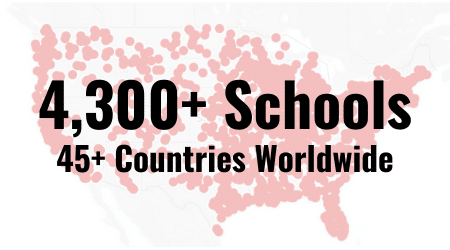“The Cue to Reading” Series (Article 5): What Do I Do? Where Do I Go?
A subscriber from St. Louis emailed me a couple weeks ago. She feels her son had a reading disability and was wondering what she should do next. Should she seek a tutor? If so, where could she find one? How could she get a diagnosis?
Her questions address the next logical topic to discuss in this series…How do you know if you need help? What do you do? Where do you go?
The answers to these questions vary greatly depending on many factors: the symptoms you are observing, the support system you have (or don’t have) within your child’s school, and your geographical location are just a few. However, I will attempt to lay out a framework to help guide you along the way.
“Does My Child Have A Learning Disability? How Do I Know If I Should Investigate? How Hard Do I Push?
Self-doubt may very well be a parent’s worst enemy. These questions can paralyze you into inaction for years! You can, however, take a systematic approach to these questions and “triangulate” your resources. That is, pull your information from three sources to help you get a well-rounded perspective on the situation. These sources are:
- Data and observations from you, your child’s teachers, and any other forms of assessment conducted on your child.
- Your research of symptoms.
- Your gut instinct.
Data and Observations
The first source of information is fairly self-explanatory. Make a detailed list describing all of your observations and reasons for concern. Then, pull all of the notes, progress reports, report cards, and other forms of assessment that you have on your child. Look for patterns or correlations between your concerns and the documentation you already have. This process will give you more direction for the second source of information, your research.
Research
If you are reading this, my guess is that you have already done your fair share of research on the symptoms that are of concern to you. As you did with your “data and observations,” evaluate your research for patterns and correlations. Is your research strongly indicating a specific condition? Can you provide stories or examples to support the symptoms you are observing? This will better help you identify the nature of your concerns and more effectively communicate with professionals when you begin seeking help.
Your Gut Instinct
This category should be given as much weight as each of the other two. While you want to remain somewhat objective in your pursuit of help, objectivity does not paint a full picture. I have spoken with many parents who had to fight hard to get help for their child because they sensed a problem was lurking just beyond the surface observations. Their child’s teachers did not see the issue, the doctor did not understand the severity of the problem, and everyone kept “blowing off” their concern, saying it would get better with time. If you get reactions like that, yet still feel unsettled, there is likely a reason! You are an animal and animals have instincts. Trust yours…and keep fighting!
“Where Do I Go For Help?”
Start by sharing your concerns with your child’s teachers, administrators, school counselors, and special education staff. If you do not get satisfactory assistance at the building level, check with special education administrators within your school district, county, and/or regional education districts. Also discuss your concerns with your pediatrician. Hopefully, these people will listen carefully to your concerns, point you in the right direction, and provide supportive help.
But, what if they don’t?
Speaking from my own experience, my child’s school and healthcare professionals were either not listening to my concerns or did not feel they were valid. I have heard many stories from other parents that are far too similar. So, you may have to dig a bit deeper…
If that is this case, leverage every resource you have! As with many things in life, networking may lead to an answer. Think about people you know in the healthcare or education professions. Share your concerns, ask them if they might have a suggestion or referral, and follow-up on their leads. Of course, you must use your judgment through this process, but you will more than likely find someone who knows someone else who went through a similar situation. These people have been through the trenches and can provide good resources for your local area.
You can also find a listing of resources, organized by state, at the link below. This site is sponsored by the National Center for Learning Disabilities: http://www.ncld.org/index.php?option=com_locator&view=resources. Take one afternoon to call every phone number listed under your state. Ask every live person who answers the phone what you should do next and where you can go for help. This process would undoubtedly help you uncover valuable resources.
Our Friend In St. Louis
I wrote back to the mother from St. Louis who is wondering how to help her son. I shared the NCLD.org website with her, since I am not personally familiar with any resources in her area. I also shared this:
I would encourage you to focus on a diagnosis at this point, rather than a tutor. Your interventions would be so much more effective if you know exactly what you are dealing with. Also, getting a formal diagnosis would make your son eligible for assisted services throughout school and career. This is something he can always choose to use or not use, but the documentation would give him the OPTION. Of course, this is assuming he has a learning disability. I can’t say for sure, but if your gut tells you that he does have a disability, then it is probably worth your while to investigate further.
The good news is that there is so much that can be done…at any age! I have been researching all kinds of information in the last several months (much of which will be featured in upcoming articles), but more and more studies are confirming that the brain can “rewire” itself to overcome deficiencies at any age, if you know the right interventions to target.
A few months before we had received a diagnosis for my son, I was sharing my concerns with a colleague. I said, “I can deal with whatever it is. I just need to know what IT is!” He replied, “You know, I have found in life that problems rarely remain problems once you have identified them.”
-Susan Kruger
EB 082117
Six Steps to
Conquer the Chaos
Get Our Free Guide & Information on...

"*" indicates required fields
SOAR® in the News
The SOAR® Curriculum
The most critical learning, organizing, and communication skills needed for school. Learn more here.
Who’s Using SOAR®?
SOAR® Guarantee
Click here to learn more.




